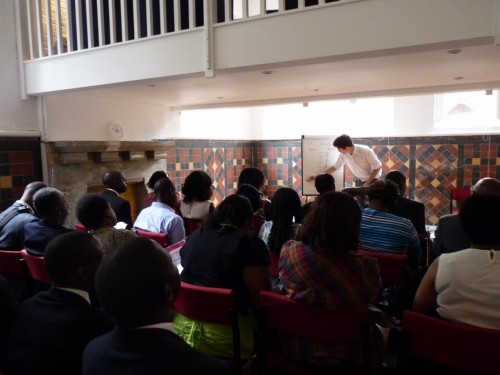The Labour party is not a staid, safe and secure party ensconced in Westminster. It is not enshrined in a single man or woman. It is not hidden away behind bricks and mortar. It is not a piece of writing on a card, a book of rules or a group of MPs in parliament.
The Labour party is a movement – perhaps the greatest and most successful movement for justice and social change that Britain has ever known. It is rooted in the communities of Britain, woven into the tapestry of our towns and cities, the lifeblood that holds together our villages and the energy that inspires change in our communities.
And if that is not what the Labour party is today, then it is what the Labour party has been before, and it is what it can – and must – be again if Labour is to be successful electorally and radical once back in government.
Labour needs to create and embody a movement again, to hold itself to account, win consensus for the big changes necessary, and renew itself in office.
Party renewal has – at long last and often in underwhelming or piecemeal form – taken place in recent years. But the process is unfinished – is never finished – and must continue in government.
So what would that look like?
First, the party really will need to learn to ‘let go’. Devolution of power to cities and regions is all the rage in party policy, but it must also be the party’s organisational mantra. The centre cannot be afraid of local candidates and local campaigns pressing for change that may not match in entirety the party’s policies in government. The traditional command-and-control model has relied upon iron discipline. The new model for a successful party will feature more tension but also greater involvement and collaboration. The Labour leadership will no longer recoil from those urging the party to go further, but instead see this as a positive tension that drives the party forward on issues that resonate in communities – jobs and housing, for example – and gives the movement energy.

A return to – and full embrace of – the model pioneered by Arnie Graf would be the logical place to start when crafting such a movement party, using organisers within the early years of the new parliament to engage with, build and encourage campaigns in their own communities. Capacity and engagement would be the metrics that local parties would be measured by, at least at first, rather than purely on voter ID. Taking the reforms instigated by Miliband and passed by the party’s special conference to their logical conclusion, organisers would grow their local parties and the national party by bringing trade unionists and local activists into the party. And these local groups would then organise both at a local level for the issues that they want to see tackled (genuinely representative democracy), and the issues the Labour party will need to fight on at a national level, like devolution of power down to those same communities, social care, job creation and the big decisions about spending and taxation.
Movement politics gives us the opportunity to show our best face to the world. Too often Labour (and other mainstream parties) can lapse into the rhetoric of ‘Only X can beat Y’. While this may be the case under our electoral system, it inspires no-one. Labour could and should be arguing that we are the best option available, the one that represents you and those around you, rather than arguing ‘We’re the best you’re going to get’.
By making that step-change, Labour can both renew in government, and use government as a springboard into a more successful future, rather than looking over our collective shoulder, fearful that the electorate and their wrath will catch up with us eventually.
Winning the election on May 7th is a huge challenge. But it cannot be the end of the journey. The next challenge is to build support to ensure we deliver in government, and then build as a party and a movement to ensure that the next challenges are those we can face and meet. Only by doing so will the Labour party regain the trust and faith of a frustrated nation – but, more than that, the party and the people can go on to achieve bigger things, together.
This is an extract of the essay “Preparing for power” published in this month’s Progress Magazine. You can read the full essay here. You can read responses from Rachel Reeves and Liz Kendall – and download the app for iOS and Google Android.




More from LabourList
Antonia Romeo appointed to lead civil service as new Cabinet Secretary
‘If Labour is serious about upskilling Britain, it must mobilise local businesses’
Stella Tsantekidou column: ‘What are we to make of the Labour Together scandal?’